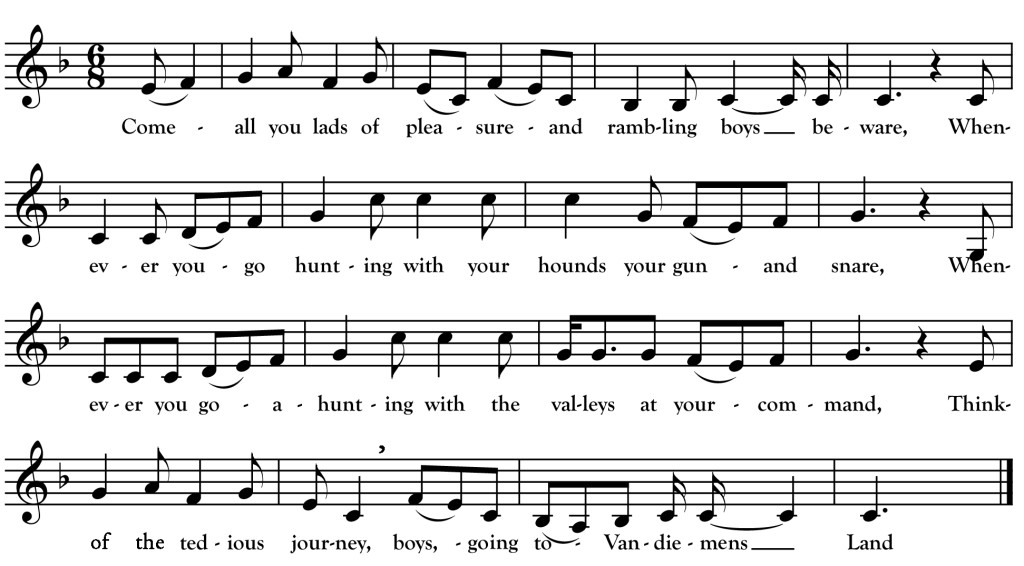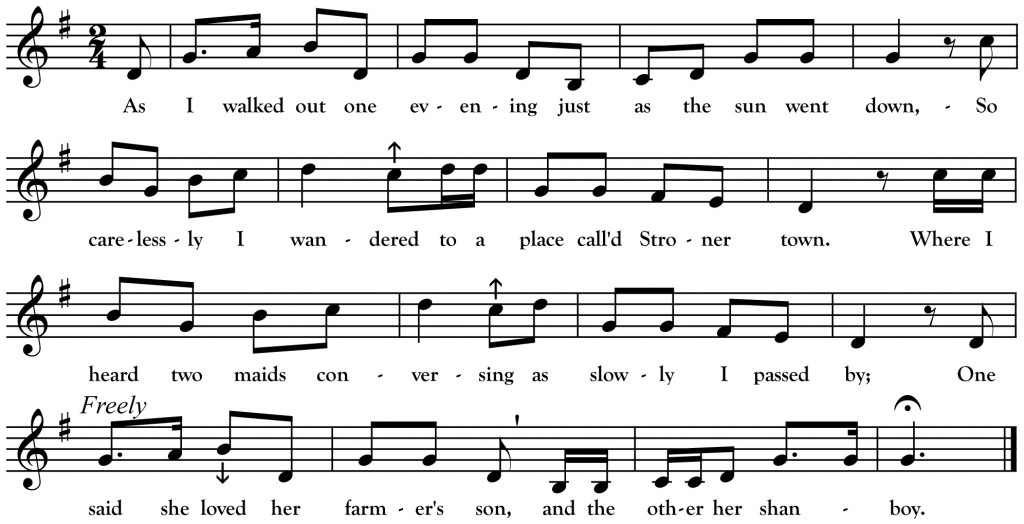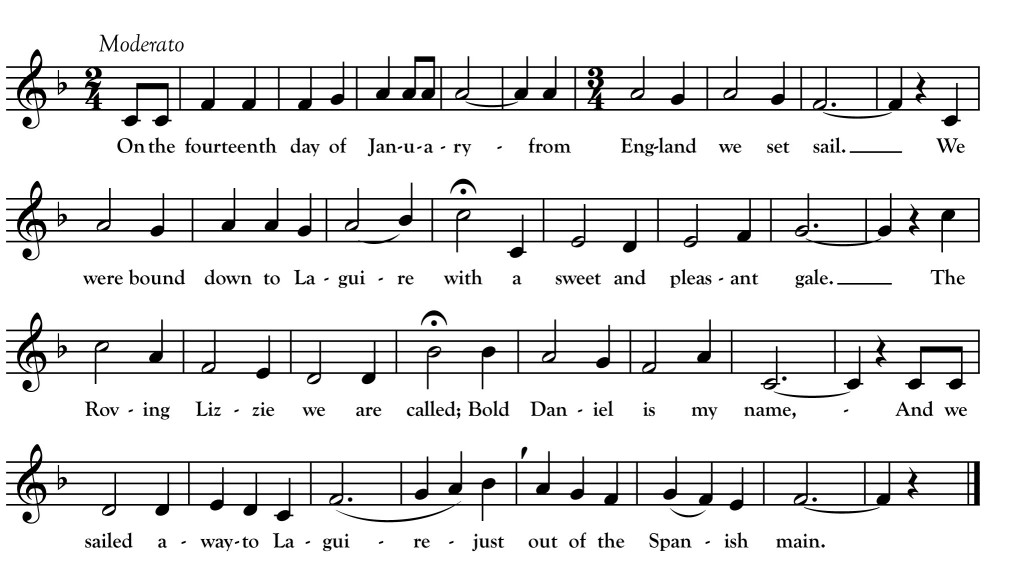Vandiemens Land (Laws L18)
 e
e
Come, all you lads of pleasure and rambling boys beware,
Whenever you go hunting with your hounds, your gun and snare,
Whenever you go a-hunting with the valleys at your command,
Think of the tedious journey, boys, going to Vandiemens Land.
There was Joe Brown from Nottingham, Jack Williams and Jack Jones,
They were three as jolly fellows, so well their country knows;
They were taken one night near the bay, all with their gun in hand,
And for fourteen years transported unto Vandiemens Land.
There was a girl from Nottingham, Sally Simons was her name,
For seven years transported for carrying on the game;
Our Captain bought her freedom and he married her off hand,
She gave us good usage going to Vandiemens Land.
The landing port we went to was on a foreign shore,
The planters they surrounded us, full a score or more,
They yoked us up like horses and sold us out off hand,
And they hitched us to the plow, me boys, to plow Vandiemens Land.
The houses that they built for us was made of sods and clay,
The beds we had to sleep on were made of rotten hay;
Oh, rotten hay for beds, me boys, and slumber if you can,
Oh, they gave us the very worst usage while on Vandiemens Land,
Last night as I lay down to sleep I had a pleasant dream,
I dreamt I was back in Ireland, down by a purling stream,
With my Irish girl beside me and her at my command,
But when I awoke my heart was broke, off on Vandiemens Land.
______________________________________________________
Anthony Van Diemen of the Dutch East India Company chartered an expedition led by explorer Abel Tasman resulting in the first European landing on land (later discovered to be an island) off the south-eastern coast of New South Wales (Australia) in 1642. The island, later renamed Tasmania, was colonized by the British in 1803 as a penal colony with the name Van Diemen’s Land. Convicts were sent to the island from that time until 1853.
Several traditional ballads mention punishment by transportation to Van Diemen’s Land. In this one, once prevalent in England, Scotland, Ireland, Australia and North America, the crime is poaching. This version, collected from Minnesotan singer Mike Dean, is from the point of view of a convicted Irishman though his criminal shipmates are poachers from Nottingham, England. Other versions tell of poachers apprehended in Ireland itself.
In the 1800s, the right to hunt in England and Ireland was limited to the aristocracy. Poaching was not the violation of animal protection laws it is today but rather an assault on the property of the wealthy who kept game on their lands. Poachers were usually people from the lower classes seeking food or money from the sale of wild game on the black market. Mike Dean was himself an avid hunter who made many trips around Minnesota and eastern South Dakota hunting prairie chickens while living in Hinckley in the late 1800s. It is interesting to imagine what this song meant to him as the son of Famine immigrants from County Mayo.
More detailed information on this song from the Traditional Ballad Index


